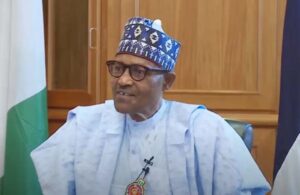The Federal Government has declared its intention to invest and focus attention on natural gas exploitation in the country.
Addressing the 6th Gas Exporting Countries Forum (GECF) Summit in Doha, Qatar, last week, President Muhammadu Buhari said enactment of Petroleum Industry Act (PIA) was designed to enable Nigeria to derive more value from natural gas.

Buhari was represented by Chief Timipre Sylva, Minister of State, Petroleum Resources, according to a statement by Horatius Egua, Senior Adviser to the Minister on Media and Communications.
Buhari said the recent enactment of the PIA was an indication of government’s commitment to derive more value from natural gas by providing required governance, regulatory and fiscal framework to support the industry’s growth.
He said Nigeria, a gas province with some oil was committed to sustainable growth of natural gas exploitation and utilisation, both for domestic use and export via LNG and pipeline gas to sub-regional African countries.
According to the president, Nigeria is embarking on different initiatives, projects, and policies to enhance the performance of the oil and gas sector.
He listed some of the gas initiatives Nigeria is currently embarking upon to include the National Gas Expansion Program (NGEP).
“NGEP is designed to provide framework and policy support to extend gas supply and utilisation in power generation, gas-based industries and in emerging niche gas sectors.
“Such are gas in transportation, Liquefied Petroleum Gas (LPG) for cooking and remote virtual gas supply using trucks to convey LNG and Compressed Natural Gas (CNG) to industries,” he said.
The other initiatives according to the president are the Ajaokuta-Abuja-Kano gas pipeline to support five billion cubic feet per day of domestic gas utilisation in the near term and five-Gigawatt power generation.
“The expanding of the current LNG production capacity to about 30 million tons per annum at Bonny with the on-going N-LNG Train seven project and the declaration of 2021-2030 as the Decade of Gas towards a gas-powered economy.
“This would not only lower Nigeria’s Green-house Gas (GHG) emissions but also reduce the country’s import bills.”
The President noted that with natural gas projected to be the leading fossil fuel in the energy transition, the GECF, given its member countries vast experience, was well positioned to provide credible platform to promote natural gas as a sustainable fuel for an effective energy transition.
Read Also: FG Moves To Tackle Under-Dispensing Of LPG By Marketers
“We, therefore, need to continue to assess the gas and energy market dynamics both in the short, medium, and long-term time frame with the aim of taking market opportunities and collectively address the challenges,” he noted.
To achieve the set objectives, he stressed the need to work together as policy makers, investors, decision makers, researchers and technology developers to make modern energy sources such as natural gas available and affordable to all.
While restating Nigeria’s commitment to Conference of Parties (COP26) Glasgow declaration towards zero carbon emissions, Buhari however underscored the importance of natural gas for effective energy transition towards a low carbon future.
He equally emphasised the need for natural gas as a fuel for socio-economic development, taking into consideration its credentials such as abundant, flexible, cleanest fossil fuel, and its versatility.
Kindly like us on Facebook















